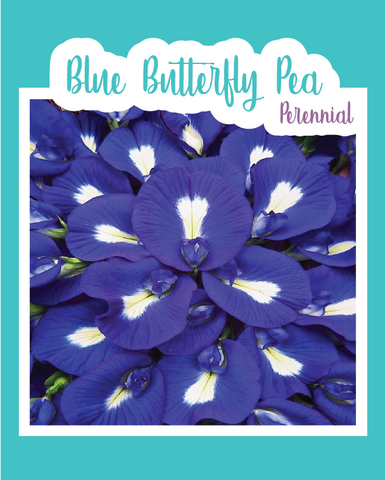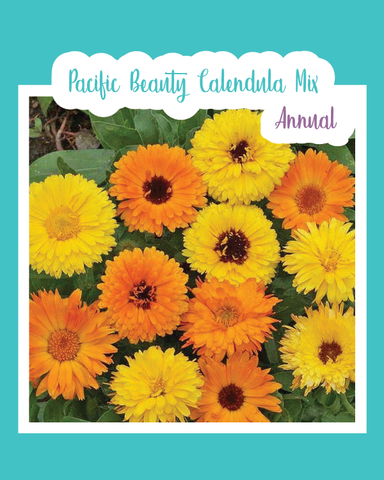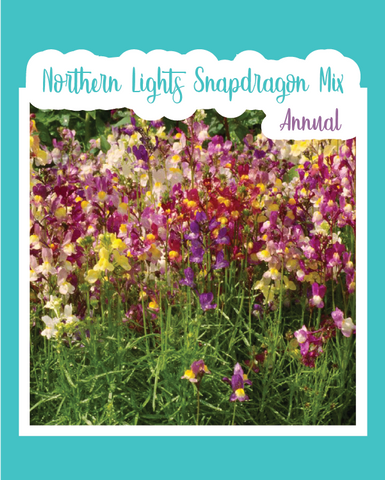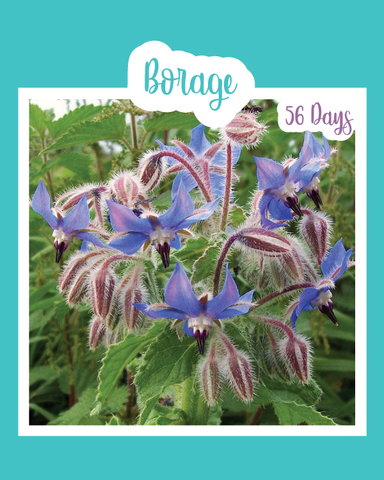
Dwarf Blue Bachelor Button Cornflowers
Seed Count: Approx. 200 seeds
Days to Maturity: Annual
Description: Dwarf Blue Bachelor Buttons are known for their stunning blue color. This edible wildflower is continuously a winner in the garden. It's a cool weather annual, and are one of the earliest to bloom in the spring. The flowers can be used to make dye for frostings and candies, but can also be eaten fresh in salads, and used as a garnish. It's described to have a sweet, spicy, clove-like flavor. Bachelor buttons also make for beautiful fresh or dried cut flower arrangements, and do wonderfully dried in potpourris. This dwarf variety will only grow to about 1-2 ft. tall, so it's perfect in small spaced gardens. Bachelor buttons are loved by both bees and butterflies, so make sure to add these beauts to your pollinator garden! Fun fact, this classic flower is a symbol of young love.
How To Grow
Sowing: You can direct sow your seeds in the late fall or early spring. Since they prefer cooler weather, in the deep south seeds should be sown in the fall, and they should be partially shaded. If you are growing these in a cooler zone, make sure to choose an area with full sun, and sow your seeds about 1/2 an inch below the surface. To start your seeds indoors, plant them about 1/2 an inch deep in individual pots or in a flat. Germination should occur within 7-14 days. Keep the dirt evenly moist, and at a temperature of 65-70 degrees until they germinate. Harden off, and transplant your seedlings before the reach 5 inches tall.
Growing: Since Bachelor Buttons prefer cool temperatures, it will appreciate filtered shade during warmer months. Water your seedlings occasionally, until they become established. Once established, it can handle some drought. However, they do better with adequate moisture, and may require occasional watering. To promote bushy branched plants, occasionally pinch off the tops of the developing stalks. If deadheaded regularly, it will produce prolific blossoms. In hotter regions, it may slow down or completely stop blooming in the heat of summer. If you leave some flowers on the plant to make seeds, they will readily reseed itself.
Harvesting: Cornflowers make great cut flowers, and have a vase life of 4-5 days. When dried, these flowers still retain their beautiful color, and look great in dried arrangements too. To harvest fresh flowers, make sure to cut the stems long and place them in water immediately. For culinary use, cut flower heads that have just opened. To dry, spread them out away from direct sunlight, turning them occasionally; you can also bundle them together and hang them to dry, or use a dehydrator to dry your flowers as well. When your flowers are crisp and dry, store them in an airtight container for up to a year. To save seeds, wait until the developing seeds easily come loose from the seed head. Remove the seed heads, and spread them out to further dry, away from direct sunlight. When thoroughly dried, thresh out the seeds to separate them from the husk, then store your seeds in a cool, dry place.




